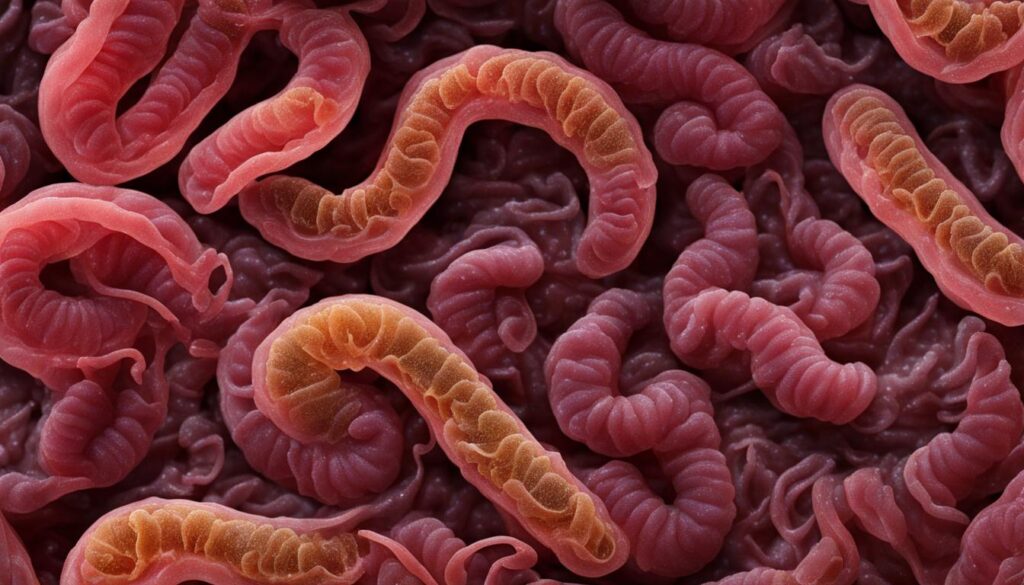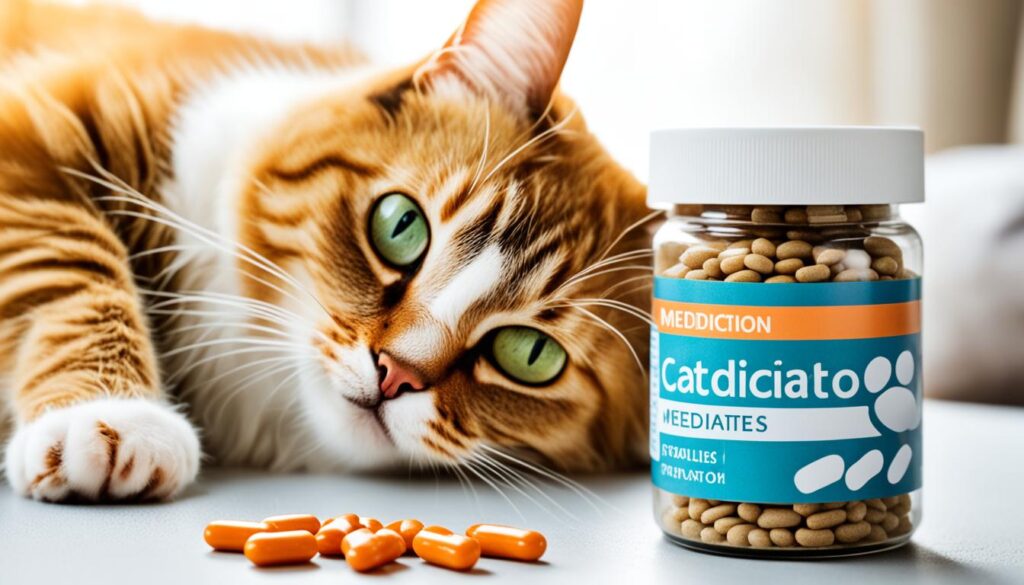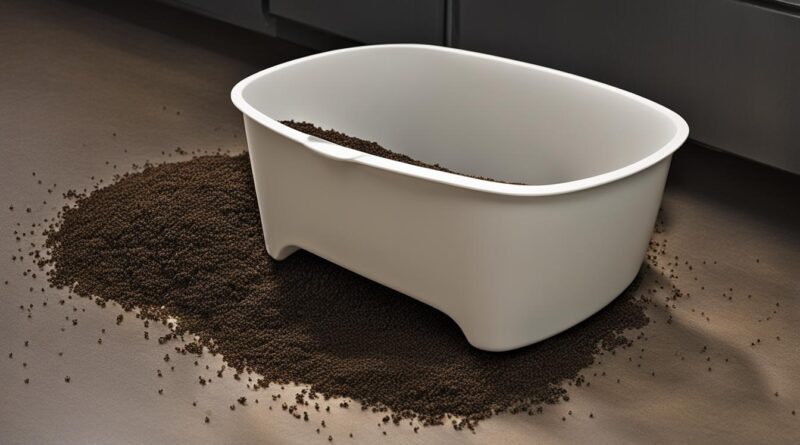Why Does My Cat’s Poop Smell So Bad?
Cats are such lifesavers. Sometimes all you need is a little guy to follow you around and sit on your lap (or keyboard) the first chance they get – or ignore you all day until it’s time to eat if yours is like mine. That is why we, cat owners, should always be alert for any signs that something might be up with our furry friends. One such sign you should keep an eye on is the smell of their poop. For a healthy cat, their poop should have a mild and barely noticeable smell, described as earthy or musky. However, when the smell becomes particularly strong and unpleasant, it may indicate potential health concerns. In this article, we will explore the reasons behind the foul odor in your cat’s feces and learn what might be causing your cat’s poop to emit such a strong smell.
Just like humans, cats can be sensitive to certain foods or specific ingredients found in some foods. For example, your cat might be sensitive to foods with high vitamin content or grains. Some cat foods also contain fillers that are hard to digest, resulting in smelly cat poop. Additionally, if your cat hunts and eats protein-rich foods like bugs, rodents, or small reptiles, it can cause a bad odor in their feces. If you have recently introduced a new food into their diet or suspect they have been hunting, you can try removing the food or waiting it out to see if the smell improves.
Key Takeaways:
- Cats can be sensitive to certain foods or ingredients, which can lead to smelly poop
- Some cat foods contain fillers that are hard to digest, resulting in a foul odor
- Protein-rich prey, like bugs or rodents, can also cause smelly cat poop
- Removing suspected food or waiting can help improve the smell
The Role of Diet in Smelly Cat Poop
Just like humans, cats can be sensitive to certain foods or specific ingredients found in some foods. For example, your cat might be sensitive to foods with high vitamin content or grains. Some cat foods also contain fillers that are hard to digest, resulting in smelly cat poop. Additionally, if your cat hunts and eats protein-rich foods like bugs, rodents, or small reptiles, it can cause a bad odor in their feces. If you have recently introduced a new food into their diet or suspect they have been hunting, you can try removing the food or waiting it out to see if the smell improves.
If you want to address the issue of smelly cat poop, it’s important to pay attention to your cat’s diet. Introduce high-quality cat food that is free from fillers and grains, and that contains easily digestible ingredients. Opt for protein-rich foods that provide the necessary nutrients without causing digestive issues.
Here are some key points to consider when it comes to your cat’s diet:
- Sensitivity to certain foods: Some cats have sensitivities or allergies to certain types of foods, such as those with high vitamin content or grains. Pay attention to how your cat reacts to different foods and ingredients.
- Avoid fillers: Cat foods with fillers like corn, wheat, and soy can be hard to digest and may result in smelly cat poop. Look for high-quality cat foods that prioritize real meat as the main ingredient.
- Protein-rich foods: Cats are obligate carnivores, meaning they thrive on a diet rich in animal protein. Ensure your cat’s diet includes protein sources like chicken, fish, or beef.
“A cat’s diet plays a crucial role in their overall health, including the smell of their poop. By providing them with a balanced and nutritious diet, you can help reduce the unpleasant odor and promote their well-being.”
Keep in mind that every cat is unique, and what works for one cat may not work for another. If you’re unsure about your cat’s dietary needs or need help addressing the issue of smelly cat poop, consult with your veterinarian for personalized guidance and recommendations.
Bacterial and Parasitic Causes of Smelly Cat Poop
Cats have a natural prey drive and may hunt and eat rodents, birds, and other small animals. While this is usually not a problem, if the prey they consume is infected with bacteria like salmonella or E.coli, it can lead to foul-smelling cat feces. Additionally, cats can get intestinal parasites like Giardia, Coccidia, and Trichomonas, which cause smelly stool. If your cat shows signs of fever, diarrhea, nausea, vomiting, or other symptoms, it is important to have them checked by a veterinarian as advanced cases of bacterial infection or parasitic infection can be life-threatening.

Intestinal parasites such as Giardia, Coccidia, and Trichomonas are common causes of smelly cat poop. These microscopic organisms can infect your cat’s digestive system and cause gastrointestinal symptoms, including diarrhea and foul-smelling feces.
| Bacterial Infections | Intestinal Parasites |
|---|---|
| Salmonella | Giardia |
| E.coli | Coccidia |
| Trichomonas |
Medications, Anal Gland Infections, and Digestive Disorders
Certain medications, such as antibiotics or supplements, can alter the normal gut bacteria or chemical balance in your cat’s body, resulting in smelly poop. Anal gland infections can also cause foul-smelling feces, as these glands can become infected and produce a strong odor. Digestive disorders, including mal-digestion and malabsorption, can cause smelly cat poop due to the inability to properly digest food or absorb nutrients.
If you suspect medication or anal gland infection as the cause of your cat’s smelly poop, it is important to consult with a veterinarian for proper treatment. They will be able to provide specific recommendations based on your cat’s condition. Medications may need to be adjusted or discontinued, and proper care methods for anal gland infections will be prescribed.
When it comes to digestive disorders, a veterinarian will run tests to identify the underlying cause. This may involve stool analysis, blood work, or imaging studies. Once the cause is determined, appropriate dietary changes or interventions can be recommended to alleviate the digestive issues and improve the smell of your cat’s poop.

Conclusion
In conclusion, there are several possible reasons why your cat’s poop may smell bad. One of the main factors is the diet of your cat. By making changes to their diet, such as eliminating certain foods or switching to higher-quality cat food, you can help improve the smell of their poop.
Another contributing factor to smelly cat poop is the presence of bacterial or parasitic infections. If you suspect that your cat may have an infection, it is important to consult with a veterinarian for proper diagnosis and treatment.
Certain medications, anal gland infections, and digestive disorders can also result in foul-smelling feces. If you suspect any of these conditions, it is important to seek veterinary advice to address the underlying cause of the problem.
Additionally, there are steps you can take at home to minimize the smell of your cat’s poop. Regularly cleaning the litter tray, using odor-controlling cat litter, and ensuring that your cat is properly groomed can all help reduce the odor.
If you are concerned about your cat’s smelly poop, it is best to consult with a veterinarian. They will be able to assess your cat’s overall health, determine the underlying cause of the odor, and provide appropriate treatment to fix the smelly cat poop.
FAQ
Why does my cat’s poop smell so bad?
The strong smell in your cat’s poop could be due to various reasons. It could be related to their diet, bacterial or parasitic infections, medication, anal gland infections, or digestive disorders.
What role does diet play in smelly cat poop?
Your cat’s diet can contribute to the foul odor in their poop. Certain foods with high vitamin content or grains can cause sensitivity in cats, resulting in smelly poop. Protein-rich foods like bugs and rodents can also affect the smell of their feces. Consider changing their diet or removing certain foods to see if the smell improves.
What are the bacterial and parasitic causes of smelly cat poop?
Bacterial infections from contaminated prey or parasites like Giardia, Coccidia, and Trichomonas can lead to foul-smelling cat feces. Watch for symptoms such as fever, diarrhea, nausea, vomiting, and consult a veterinarian if you suspect an infection.
How can medications and anal gland infections affect the smell of my cat’s poop?
Certain medications, such as antibiotics or supplements, can disturb the normal gut bacteria, resulting in a strong odor. Anal gland infections can also cause smelly feces. If you suspect medication or anal gland infection as the cause, consult with a veterinarian for proper treatment.
What other factors can contribute to smelly cat poop?
Digestive disorders like mal-digestion and malabsorption can cause smelly poop due to the inability to properly digest food or absorb nutrients. Keeping the litter tray clean, using odor-controlling cat litter, and regular grooming can also help minimize the smell. Consulting with a veterinarian is essential for identifying the underlying cause and providing appropriate treatment.


